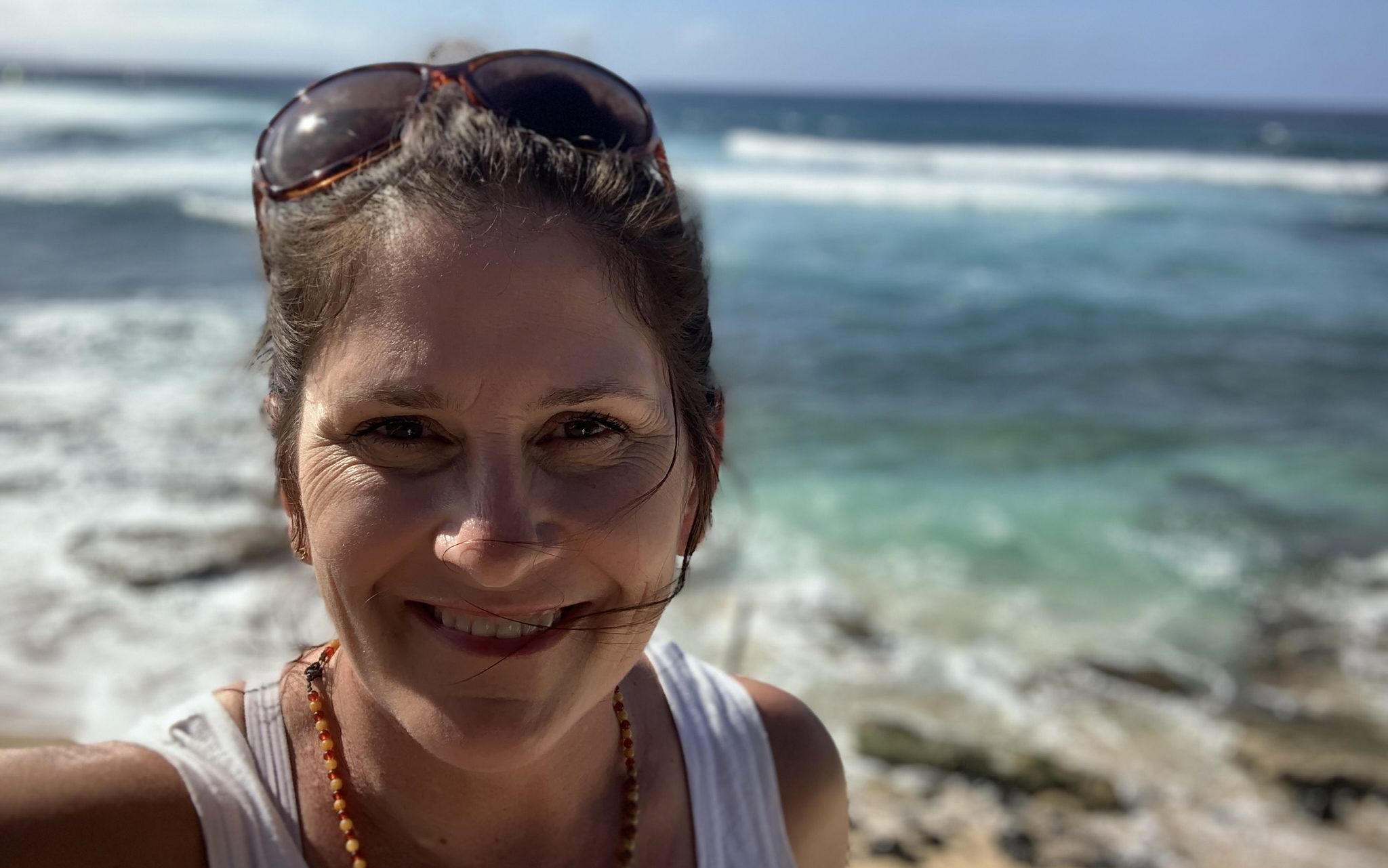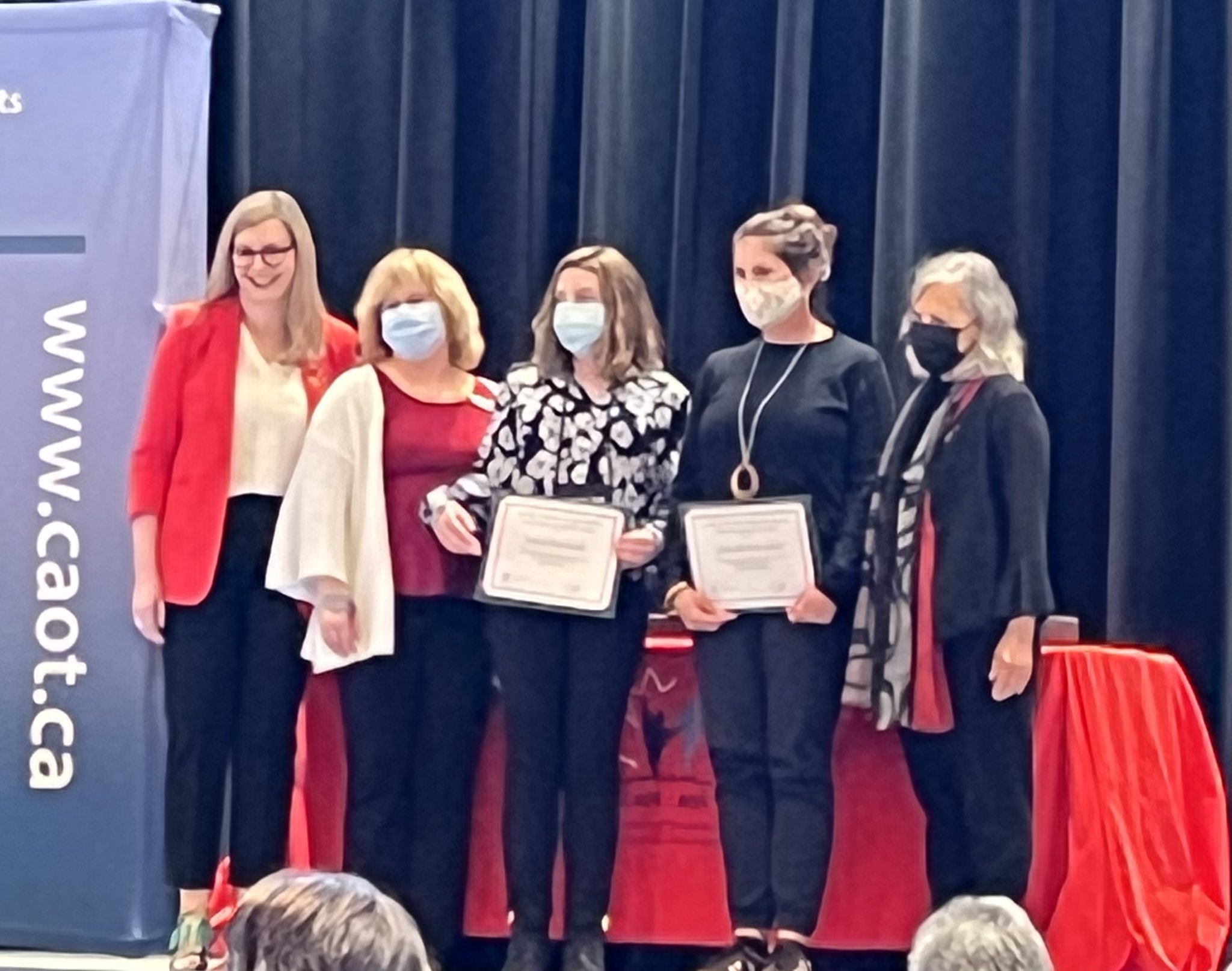

One of the cornerstones of our MOT program is fieldwork placements, in which students get to practise their clinical skills and build on their clinical reasoning for several weeks at a time under the supervision of our fieldwork educators. Without our clinical faculty, these placements would not be possible, and we are immensely grateful to them for the time, effort, and expertise that they contribute to our program. We are also pleased to offer fieldwork educators training, workshops, and other resources for career advancement, as well as celebrating their contributions to our department.
OSOT Clinical Assistant Professor Linda Del Fabro Smith recently received the UBC CAOT Award for Excellence in Occupational Therapy Fieldwork Education for 2022. This award, for which she was nominated by one of our MOT students, recognizes Linda’s immense contributions to clinical education and her “exceptional performance in student practice teaching and in student mentoring.” We recently spoke with Linda about her experiences as a fieldwork educator and her passion for this work.
Let’s start with a bit of background. When did you first join our department?
I’ve been a clinical faculty member since 2009, but I started out as a student when the MOT program was still a four-year BSc. I graduated in 1996. Previous to this, my education and career was in creative and visual arts. It was my love of learning that brought me back years later as a thesis-based master’s student with Catherine. She was an amazing supervisor: every time she started a new project, I’d ask a ton of questions about it, and she really encouraged me to explore all these different directions to her work. During my MSc, she invited me to be her research assistant, and that’s when I had my first taste of teaching.
I started out facilitating small group tutorials, then I gave a lecture in OT theory. I am completely energized by applying theory to real clinical practice. I enjoyed working with the students, and I found that teaching let me keep pursuing my passion for being a student. I co-instructed then instructed occupational therapy theory. Since 2009, my role has kept evolving; I’ve started doing more role emergent supervision recently with Donna Drynan’s support and direction.
Could you describe your role as a clinical educator?
I’ve been a fieldwork supervisor in role emerging placements since 2014, and I do a lot of my work in East Van, homeless shelters, and areas of service for people who don’t have stable housing. Because these places don’t traditionally have OTs, students get to define their own roles and set their own expectations—their roles can include things like caregiving, food security, gender-based care, occupational justice, mental health, addiction, low-barrier housing, and everyone from kids and teens to older adults. I’ve supervised students at the YMCA, the Dr. Peter Centre, The Belkin House’s residential program, the Bloom Group’s Cordova House, and the PHS Community Services Society and the needs of each population are different.
Role emergent mentorship is interesting but demanding work; it requires adaptability, and it can be intimidating for students who’ve mostly been doing more structured placements in traditional settings, like neuro-rehab in a stroke population or adapting learning materials for kids with special needs in schools. Role emergent placements require a ‘generalist’ skill set; they require working in a whole range of environments without direct supervision. Role emergent supervision is aligned with coaching and mentorship in approach. I coach students and address their competencies in unfamiliar scenarios. Working with such diverse groups of people, I am always reminding students to see everything through the lens of occupational behavior and occupational identity—to always be person-centred.
How does your work as an educator dovetail with your role as an occupational therapist?
My position at VCH is in home and community care, which ties in well with the range of work that my students do. It’s a pretty unique role, because I only work with First Nations Communities on the North Shore, including the Squamish and Tsleil-Watuth Nations. I work clinically with Elders and adults on reserves. It requires a real awareness around trauma-informed practice and the ability to conceptualize occupation in different ways.
During my first lectures at UBC, Ginny Fearing used to always say: “What does it look like?” How are the person and the environment interacting? No matter your exact field, you always come back to enabling occupation.
What have some of your most memorable experiences as a clinical educator been?
One of my most meaningful experiences was having one of my students interview two Elders about their lives. It was an emotionally heavy conversation but one that we were extraordinarily privileged to hear: they shared their experiences of trauma, the residential schools, reconciliation and forgiveness with us in an honest, authentic way that was true to them. It was an honor to be invited into these stories, and it spoke to the strength of the relationships built over the years. It also speaks to the Elders’ generosity in telling their stories. One Elder spoke of the shield of privilege we bring into the room. I’ve worked hard to try and shed that in my practice, and I think this was, and is, important for students to hear.
Is there any advice that you would give somebody considering becoming a clinical educator?
I’d tell anyone considering joining the clinical faculty to jump at the opportunity. It gives back twofold what you give to it—you learn so much about your own practice when you supervise students. It also helps you keep ties with the program and relationships with the people involved, which is a real gift. There have been a lot of treasured moments for me as a clinical educator.
What does your having won the Excellence in Fieldwork Education Award mean to you?
It was an honour to receive the award. I really care about education and mentorship in the field, and it means so much to me that a former student nominated me. I found out that I had won it and that I had been nominated for the 2021 Chris Courtney Award for excellence in Fieldwork Education just before the AGM, and I received it at the formal presentation at the CAOT Conference.
I’d just like to add that Catherine Backman and Donna Drynan have been real mentors to me and guided me through the whole process of becoming a fieldwork educator. Catherine Backman helped me go beyond my studies and ignited a passion in me to do the same for other people; I wouldn’t be nearly as engaged in education without her mentorship.
I’m very grateful to be in this position and to have had so many amazing students. Working with students has been incredibly rewarding, and I’m not planning to give it up anytime soon.
Find out more about becoming a member of clinical faculty
Become an important part of our vibrant community of practitioners, researchers and students and learning ecosystem and get involved with fieldwork education.